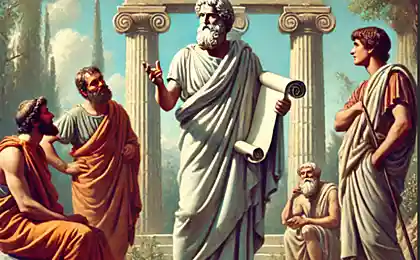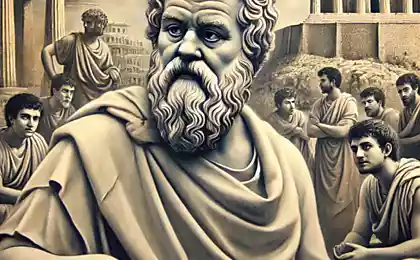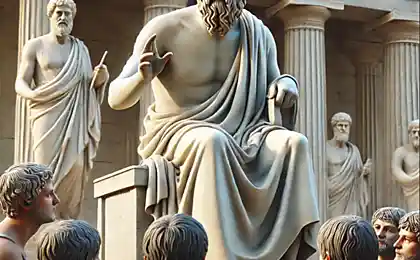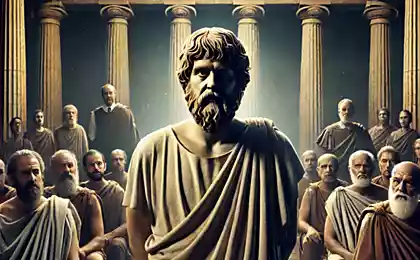222
Socrates philosophy: Questions of morality and virtue

This is the fifth and final article in the Socrates series. Reference to article four.
Socrates' views on virtue and morality
The central theme of Socrates’ philosophy was virtue. He believed that virtue is an essential element of the good life, and moral improvement is the main task of man. Socrates taught that true knowledge leads to virtue, and those who do wrong do so out of ignorance.
His approach to morality was based on the belief that a person who knows what virtue is cannot consciously act immorally. This teaching later became the basis for many ethical systems.

His idea of justice, happiness and the meaning of life
For Socrates, justice was not just an outer rule, but an inner quality of the soul. He argued that a person can be happy only when he lives justly, since happiness is not associated with material goods, but with a state of mind.
The meaning of life, according to Socrates, is the constant search for truth and self-improvement through virtue. A life of self-knowledge and moral development is thus the key to true happiness and justice.

The Ethics of Socrates and Its Influence on Subsequent Philosophy
The ethics of Socrates had a great influence on the development of Western philosophy. His teaching that knowledge leads to virtue became a central theme for Plato and Aristotle, and later for Christian thinkers. His emphasis on moral qualities as the basis of the good life has been adopted by many philosophical schools, including Stoicism and Humanism.
Socrates also laid the foundations for a philosophical tradition that sees ethics as the main task of philosophy and emphasizes the importance of self-knowledge and moral perfection.
How His Ideas Apply to Modern Society
Socrates’ philosophy is also relevant in the modern world. His approach to self-discovery and the search for truth can help each person make conscious decisions and act on moral principles. In today’s ethical dilemmas, Socrates’ ideas can serve as a guide for those seeking the right solutions.
His teaching that virtue leads to happiness can be applied both at the individual level and at the level of society, since moral principles such as justice and honesty remain the basis of harmonious coexistence.
Why was virtue central to Socrates?
Virtue was a central theme for Socrates, as he believed that without virtue it was impossible to achieve happiness and justice. For Socrates, moral perfection was the main goal of life, and he convinced his disciples that knowing what is right leads to right actions.
How can Socrates’ philosophy help with ethical dilemmas today?
Socrates’ philosophy teaches us to seek truth through questions and self-knowledge. It can be a useful tool in dealing with ethical dilemmas when you need to consider your actions and their consequences from a moral point of view. His emphasis on virtue as a key element of the good life helps guide modern man in making decisions based on fairness and honesty.
This article is part of a series of articles about Socrates. Reference to the first article.
Students Sokrat: Plato and Xenophon
How to get permanent residence in the UK: choosing the right visa























